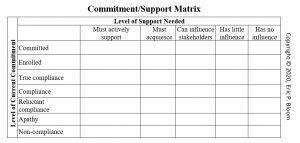I have spent many years designing and teaching classes on various types of interpersonal communication, including: negotiation, change management, conflict, leadership, difficult conversations, motivation, requesting approval, delegation, and others.
All of these interpersonal activities are enhanced by the same mechanism—trusting relationships with the individuals with whom you are interacting. You don’t have to be friends. Even though being friends may help, it is not required. Think about your personal experiences. Are you more easily influenced by someone you trust? Are you more likely to go home with a negotiated agreement if you believe the other party will hold up their end of the deal? As a manager, it is more comfortable and less stressful to delegate to someone you know will do their best to complete the task without attempting to undermine you in the process.
This brings us to an interesting question: “How can we build trust in someone we are attempting to influence?”
There are actually two answers to this question. The obvious one is what we were taught as children: Keep your promises. Have a win-win mentality. Be honest. These maxims remain true and should always be followed, but often they are just not enough.
This brings us to the second answer to this question: Strategically, get to know now those you will try to influence in the future through negotiation, change management, or conflict resolution. Although this is not always possible, try. For example: If you are a human resources manager in a new role, reach out to the line managers and executives you are supporting to introduce yourself. Establish rapport with them before you begin to push them to complete their employee performance reviews on time. If you are a salesperson in a new territory, opportunistically “swing by” to meet face-to-face with your customers before you try to make that future sale. If you are a project manager with a team in another country, schedule a Skype call with them to establish a virtual face-to-face relationship before you need to push them to complete an important task by a specific date.
These types of interactions help you establish trust, a professional relationship, and possibly, friendships. The simple act of getting to know someone first dramatically increases the probability that they will follow, help, or support you when the time comes. Certainly, remain professional, but get personal. Find common ground. If you both play tennis, talk tennis. If you both went to the same college or worked at the same company, talk about your common experiences.
If this person is very important to you, such as a major client or a big donor to your charity, do a little research. Search social media—look them up on LinkedIn or another similar tool. If you find you share something in common, when the time is right, mention it from your perspective, like, “When I worked at IBM . . .” and see if they take the bait. Then hope they say, “Wow, I also worked there . . . .” I am not saying be deceitful; I am simply saying do your homework and capitalize on what you actually have in common.
This “gift of gab,” as my mother calls it, comes easily to some people but is very difficult for others. The good thing is your ability to become a conversationalist can improve through training, practice, and experience, just like building an under-used muscle. If you have not already done so, I would strongly suggest you study emotional intelligence, active listening, personal communication styles (like DISC or Merrill and Reid Social Styles), public speaking, storytelling, and other communication activities.





